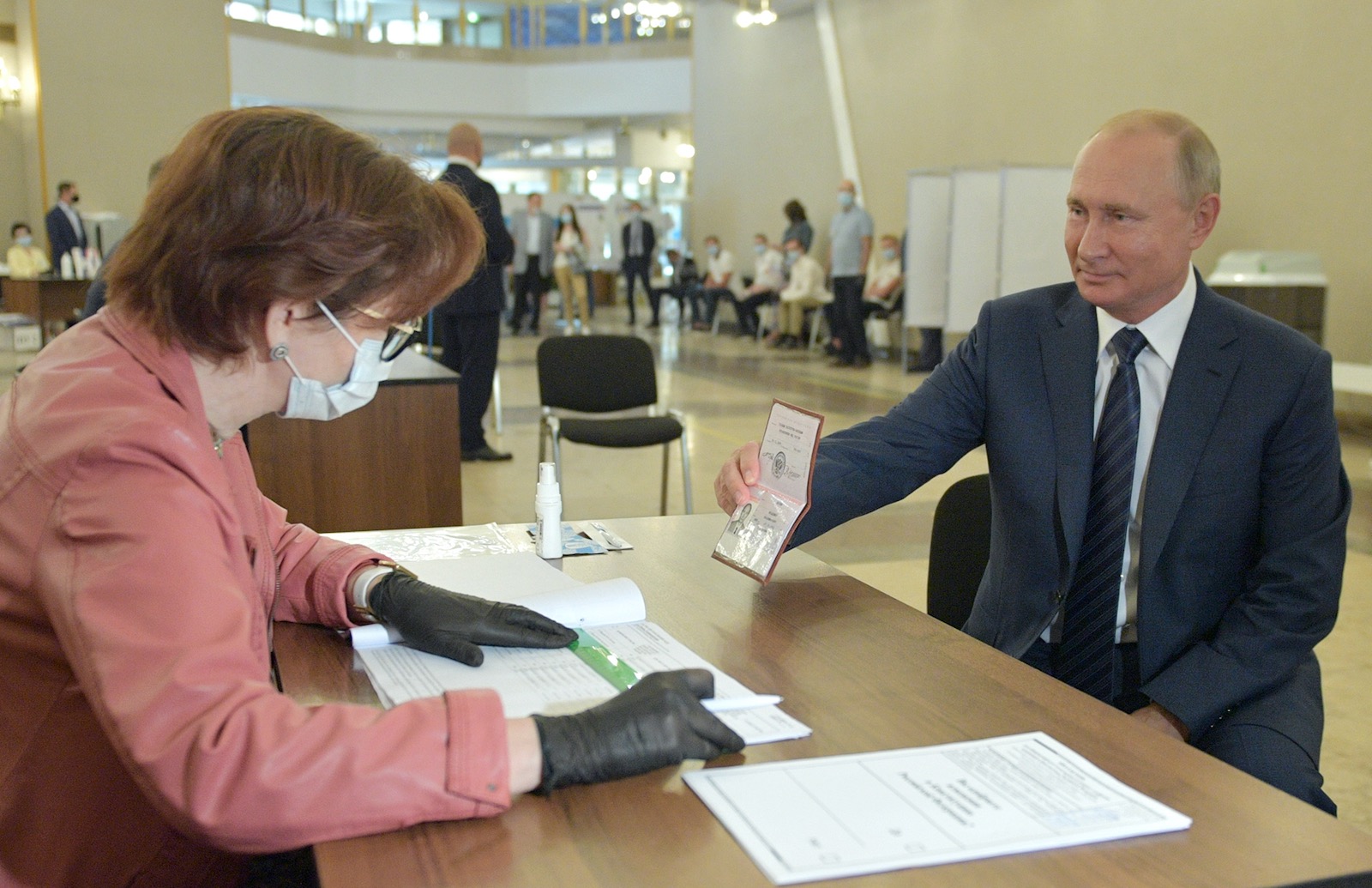On July 1, after “recovering,” by decree, from the coronavirus pandemic, Russia held a vote on a package of constitutional amendments. Introduced by Vladimir Putin back in January and expanded by the State Duma over the following months, the 206 changes are touted as protecting Russia’s sovereignty, defending Russian history, and boosting Russians’ economic well-being. The amendments also nullify the previous presidential terms of Vladimir Putin, allowing him to run again for the presidency when his current, fourth term expires—in effect, extending his twenty-year grip on power indefinitely. “Russia’s strength,” explained the chairman of the Duma when talking about amendments, “is not oil and gas, but Vladimir Putin.”
Though results weren’t formally in until July 2, the triumphal outcome of the referendum was never in doubt: Russian bookstores were already selling copies of “the new Constitution,” as if it were a fait accompli from the middle of June. Even as early as March, Ella Pamfilova, the head of the Central Election Commission, declared amendments as “already legitimate” and lauded President Putin’s effort to solicit “non-required” popular assent—a concept Pamfilova apparently disdained, judging by her smirk as she uttered the phrase.
When asked about the legitimacy of “packet” (or wholesale) voting, as opposed to voting on each individual amendment, Pamfilova compared Russia’s constitutional referendum with a prix fixe restaurant meal. If you didn’t like the beet salad but did like the borscht or the cutlets, she offered, you’d need to decide whether to turn down the whole dinner or simply skip the salad and enjoy the borscht and the cutlets. In other words, there would be no à la carte choice: if you don’t like the amendment that makes veiled threats against anyone considered to be undermining Russia’s “territorial integrity,” then you don’t get to vote on the measure guaranteeing indexed pensions either. It’s all or nothing.
Pamfilova’s cynicism is entirely explicable: in Russia, the constitution has rarely been a covenant of good governance between the state and the people. Rather, it is a tool to enshrine imposed order and provide a legal pretext for cracking down on dissent. Even a cursory look at Russia’s history suggests that if “they”—which is the way Russians routinely refer to the authorities—are reaching for the constitution, bad things are afoot.





